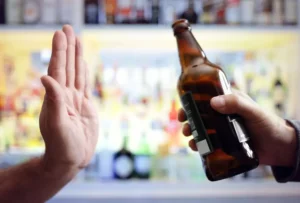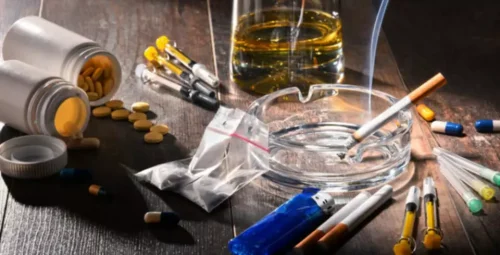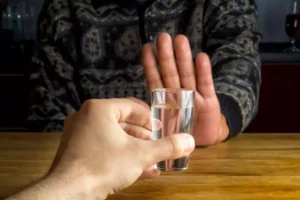Panic Disorder StatPearls NCBI Bookshelf

While for some people the occasional drink is not harmful, others find that a single sip of alcohol is enough to significantly worsen their anxiety. The type of alcohol you drink—whether beer, wine, or spirits—does not significantly impact how alcohol raises blood pressure. While red wine contains antioxidants like resveratrol that may have heart-health benefits, drinking too much wine still increases the risk of high blood pressure and cardiovascular problems. If you experience any of these symptoms, it is essential to seek medical attention immediately.
Long-Term Impact
- Anxiety as we commonly use it refers to feelings of worry, fear, or distress about something.
- Anxiety is also short for hangover anxiety, in which the individual feels a heightened sense of anxiety after ingesting alcohol.
- Anxiety attacks are slightly different from panic attacks as the former often have distinct triggers and the latter seem to happen randomly although alcohol can trigger them.
- Scientists and medical experts have come to the conclusion that beer and other beverages have characteristics of depressants and can affect the brain negatively.
Chronic alcohol consumption significantly alters the activity of key neurotransmitters, including dopamine, serotonin, and gamma-aminobutyric acid (GABA), which are central to mood and motivation. In this article, we will explore the link between alcoholism and depression, and show what support is out there. Understanding brain chemistry is key to better decision making to help support both alcoholism and mental health. If you suffer from panic attacks after episodes of heavy drinking, there are a few steps you’ll want to take. For many people, those effects don’t happen until the following day, which is why some people will experience a panic attack from alcohol the day after drinking.
Do You Need to Stop Drinking?

When your mind perceives danger everywhere, your body may respond with the fight-or-flight reaction characteristic of panic attacks. However, alcohol is a depressant that disrupts the brain’s natural chemical https://ecosoberhouse.com/ balance. Over time, these disruptions deepen depressive symptoms, leading to a vicious cycle where individuals drink more in an attempt to alleviate their worsening emotional state. Research shows that the prevalence of alcohol dependence among people with psychiatric disorders is almost twice as high as in the general population.
- Alcohol can be both a depressant and a stimulant, depending on the amount consumed.
- As your mind anticipates danger, your body releases adrenaline and other stress hormones.
- This begs the question; what can be done to treat anxiety (and more importantly, hangxiety).
- It can help individuals maintain sobriety while addressing underlying anxiety issues.
Stress Management Techniques
Paradoxically, heavy drinking can deplete GABA, a neurotransmitter that normally has a calming effect. This depletion can increase tension and potentially trigger panic attacks. It affects brain chemistry, particularly GABA, a neurotransmitter that normally has a calming effect. While small amounts of alcohol may initially reduce anxiety, heavy drinking can deplete GABA, leading to increased tension and panic. Yes, reducing alcohol consumption can help lower blood pressure, particularly if you’ve been drinking heavily or regularly. Cutting back on alcohol also reduces the risk of related health issues, such as stroke, heart attack, and heart failure.
If severe anxiety or panic attacks are a problem for you, make sure you get proper nutrition and exercise. Psychotherapy and mindfulness meditation can help you deal with anxiety. If you experience an alcohol-induced panic attack, it is important to take the right steps to calm yourself as soon as possible. However, while it is important to deal with panic attacks, it is also important to acknowledge the situation and the fear you feel. By acknowledging it, you will help your mind understand what is going on so as to understand that the situation will pass. After you’ve spent time adjusting to your lifestyle changes, assess your situation.

Symptoms and Types of Anxiety

Alcohol use disorder (AUD) is a chronic brain disease characterized by compulsive alcohol use, loss of control over intake, and negative emotional states when not using. AUD can range from mild to severe, impacting personal relationships, work, and overall quality of life. Generalized anxiety disorder involves chronic, exaggerated worry about everyday life. If you reach for alcohol in an effort to avoid experiencing a panic attack or feelings of anxiety, you can quickly become trapped in a debilitating cycle that becomes very difficult to break. This is a slippery slope that can easily spiral into a devastating addiction, make your panic attacks and anxiety worse in the long term. If you’re someone who is prone to panic attacks when there is no obvious external trigger, dealing with the stress of mistakes can make having one more likely.

Some people struggle with a disorder known as alcohol-induced panic attacks, in which they suffer from regular panic attacks after drinking alcohol. If you are frequently experiencing panic attacks after drinking alcohol, it is important to take a look at your drinking. Checking if you are regularly consuming over the recommended weekly limit of 14 units is a good start. However, you may want to cut back completely if alcohol is impacting your mental well-being through regular panic attacks.
Numerous research studies have found social support to play what is Oxford House a role in reducing anxiety symptoms and boosting overall mental wellness. Open up to trusted loved ones, family, and friends about your anxiety. Even just talking about anxiety with people can help you calm down. The withdrawal period normally peaks 72 hours after the blood alcohol level drops. The effects of withdrawal often ease 5 to 7 days after drinking ends. Additionally, panic attacks can be triggered because of the effect alcohol has on GABA, another brain chemical that normally has a relaxing effect.
If you believe you or someone you love has anxiety that gets worse with alcohol use, you or your loved one can take steps to treat their anxiety and cut down or stop drinking. But if drinking never ends, and the alcohol use becomes chronic, you might begin to see how anxiety and alcohol misuse can feed into each other. Some studies on mice show that alcohol-related anxiety can last anywhere from 4 to 14 hours. Anxiety disorder symptoms can disrupt a person’s life, making it difficult to work, participate in social events, and maintain relationships. Society would have us believe that there’s no better way to unwind after a long day than by drinking a glass of wine, cold beer, or sipping your go-to liquor.
The constant overcorrection to the flood can alcohol cause a panic attack of dopamine brought about by alcohol leaves people unable to produce adequate levels of dopamine on their own. Our program consists of treating only one client at a time individually designed to help you with all the problematic aspects of your life. All individual treatment sessions will be held at your private residence. As for Antidepressants, a doctor may prescribe Duloxetine (Cymbalta), escitalopram (Lexapro), or paroxetine (Paxil). When talking about benzodiazepines, he/she may prescribe alprazolam (Xanax), Diazepam (Valium), and Lorazepam (Ativan).